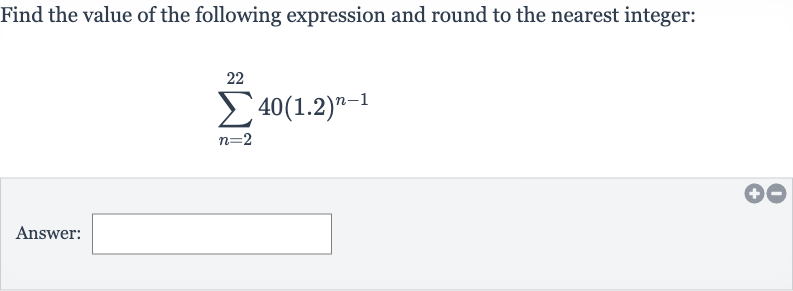Full solution
Q. Find the value of the following expression and round to the nearest integer:Answer:
- Recognize as geometric series: Recognize the sum as a geometric series. The general form of a geometric series is , where is the first term and is the common ratio. In this case, and .
- Calculate first term: Calculate the first term of the series.The first term is when , so we have .
- Use formula for sum: Use the formula for the sum of a finite geometric series.The sum of the first terms of a geometric series is given by , where is the number of terms. Here, terms.
- Calculate sum: Calculate the sum of the series.Using the formula from Step , we have .
- Perform calculations: Perform the calculations..
- Calculate exact value: Calculate the exact value of . is approximately (using a calculator).
- Substitute value into sum: Substitute the value from Step into the sum..
- Round to nearest integer: Round the result to the nearest integer.The sum rounded to the nearest integer is approximately .

